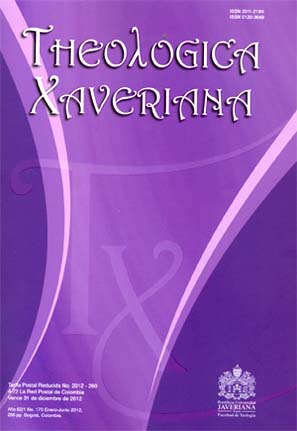Abstract
The reflection behind “Marriage is born…Marriage dies…”came up from the confrontation between Benedict XVI’s view of marriage and that of an Italian newspaper (Il Corriere della Sera). The Catholic Church focuses on the moment in which marriage is born; the State focuses on its final moment. Traditionally, the Catholic Church has promoted the indissolubility of marriage, while civil law, in general, considers the possibility of divorce. When trying nowadays to settle this conflict, some new alternatives are proposed. These regard the
possibility of reconcile law and pastoral, especially when it comes to marriage indissolubility.
This journal is registered under a Creative Commons Attribution 4.0 International Public License. Thus, this work may be reproduced, distributed, and publicly shared in digital format, as long as the names of the authors and Pontificia Universidad Javeriana are acknowledged. Others are allowed to quote, adapt, transform, auto-archive, republish, and create based on this material, for any purpose (even commercial ones), provided the authorship is duly acknowledged, a link to the original work is provided, and it is specified if changes have been made. Pontificia Universidad Javeriana does not hold the rights of published works and the authors are solely responsible for the contents of their works; they keep the moral, intellectual, privacy, and publicity rights.
Approving the intervention of the work (review, copy-editing, translation, layout) and the following outreach, are granted through an use license and not through an assignment of rights. This means the journal and Pontificia Universidad Javeriana cannot be held responsible for any ethical malpractice by the authors. As a consequence of the protection granted by the use license, the journal is not required to publish recantations or modify information already published, unless the errata stems from the editorial management process. Publishing contents in this journal does not generate royalties for contributors.


